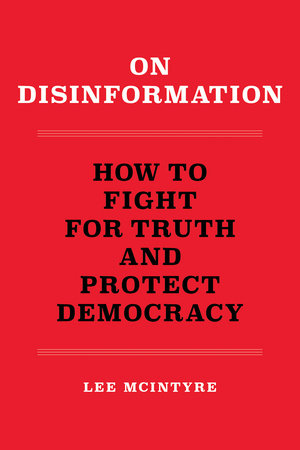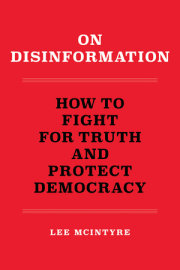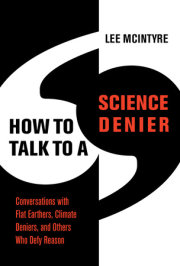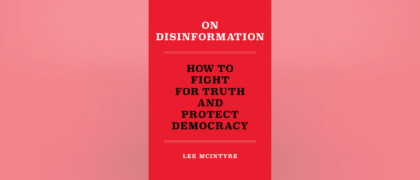The storming of the US Capitol on January 6, 2021, was an American tragedy. It was also completely predictable. The “patriots” in face paint—who carried sharpened flagpoles, bats, and zip ties into the Senate chamber—were the inevitable result of seventy years of lies about tobacco, evolution, global warming, and vaccines. After the “truth killers” provided a blueprint for how to deny scientific facts that clashed with their financial or ideological interests, it was a small step for unscrupulous politicians to figure out how to use this strategy to lie about anything they wanted, such as the baseless claim that the 2020 presidential election was stolen and that the January 6 insurrectionists were actually “peaceful protestors” or Antifa in disguise.
Welcome to the world of reality denial, where truth is subordinate to ideology, feelings have more weight than evidence, and democracy hangs in the balance. Throughout history, autocratic leaders and their wannabes have understood that the quickest way to control a population is to control their information sources. But in a society that still has a free press, disinformation is the new censorship. Remember that scene in
Indiana Jones and the Last Crusade where Harrison Ford has finally found the Holy Grail but can’t tell which one it is because it’s surrounded by a hundred fakes? That’s the point of disinformation. If you can’t hide or destroy the truth, surround it with bullshit. You can always kill it later.
The post-truth playbook goes like this: attack the truth tellers, lie about anything and everything, manufacture disinformation, encourage distrust and polarization, create confusion and cynicism, then claim that the truth is available only from the leader himself. The goal is not merely to get people to believe any particular false claim, but to so demoralize them with a tsunami of falsehoods that they begin to give up on the idea that truth can be known at all, outside a political context.
In her landmark work on totalitarianism in the twentieth century, political philosopher and Holocaust historian Hannah Arendt said it best: “The ideal subject of totalitarian rule is not the convinced Nazi or the convinced communist, but people for whom the distinction[s] between fact and fiction . . . true and false . . . no longer exist.”1 More recently another Holocaust historian, Timothy Snyder, put it even more succinctly: “post-truth is pre-fascism.”2
We’ve got less than a year to figure this out. Now that Kevin McCarthy and the Republican faithful have succeeded in retaking the House in the 2022 midterm elections—which means that the GOP was effectively rewarded for having embraced Trump’s “big lie” in 2021—they’re perfectly positioned to install Trump (or whomever they like) as president, no matter the vote count in 2024. After that, some wonder how close we’ll be to Orwell’s nightmare: 2 + 2 = 5 in the basement of the Ministry of Love.
Once truth dies, the end may come swiftly for American democracy. Like Russia and China, we’ll still have politicians in suits going about a charade of the people’s business in the halls of government, we may even have further elections, but it won’t really matter. If the truth killers succeed in using reality denial to undermine democracy, the next day we’ll wake up in an electoral dictatorship.
1. Hannah Arendt,
The Origins of Totalitarianism (New York: Meridian Books, 1958), 474.
2. Timothy Snyder, “The American Abyss,”
New York Times, January 9, 2021, https://www.nytimes.com/2021 /01/09/magazine/trump-coup.html.
Copyright © 2023 by Lee McIntyre. All rights reserved. No part of this excerpt may be reproduced or reprinted without permission in writing from the publisher.











